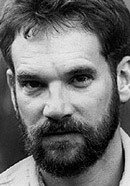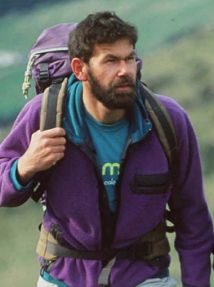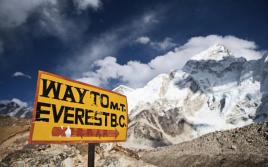
Into Thin Air by Jon Krakauer is about his journey while climbing Mount Everest in 1996, the year Mount Everest experienced their deadliest climb in history. Krakauer survived and successfully submitted Mount Everest. After climbing Everest and achieving ones goals, I would expect the person to feel ecstatic, accomplished, and proud of themselves. Krakauer however feels an overwhelming sense of guilt as many of his teammates, guides, and Sherpas died during this tragedy. Continual rumination of his climb compelled him to work through his guilt by writing the true facts about his eventful journey to allow him to put Everest in the past. It also allowed people like us to learn what actually happened on top of the world two decades ago. If I look through an archetype lens I can see the reason why Krakauer feels guilty.

Rob Hall was the expedition leader. He was in charge of one of 14 groups climbing Everest that year. In the past, Hall has been very successful as most of his clients are able to summit as he has one of the best plans to get his clients acclimatized. He acts as the mentor in this novel as he protects and guides people up the mountain. He also provides his clients with knowledge which is key for being successful on this mountain. Due to his experience he knows that climbing Mount Everest is never smooth sailing; climbing Everest will never be easy no matter what the circumstances are, and unwanted challenges are bound to happen. Rob Hall was stuck near the summit during a storm which lead to his death. Krakauer looks up to Hall as he was the expedition leader thus a mentor to Krakauer. There is a presence of guilt as a strong mentor like figure loses a life while an inexperienced climber survives.
 The Sherpas can be considered the caregivers in this novel. They risk their lives all the time to care for visitors who want to climb the mountain while accompanying and helping them make it to the summit. They are just as important as the guides, if not more important. This is their home land, they know everything about the mountain, they respect the mountain and above all else put their safety of the climbers above their own. Three of the fifteen deaths on Mount Everest in 1996 were Sherpas trying to help others reach their dream. Krakauer lives with the fact that the respected Sherpas died while helping a new comer reach the summit.
The Sherpas can be considered the caregivers in this novel. They risk their lives all the time to care for visitors who want to climb the mountain while accompanying and helping them make it to the summit. They are just as important as the guides, if not more important. This is their home land, they know everything about the mountain, they respect the mountain and above all else put their safety of the climbers above their own. Three of the fifteen deaths on Mount Everest in 1996 were Sherpas trying to help others reach their dream. Krakauer lives with the fact that the respected Sherpas died while helping a new comer reach the summit.
How would you feel if the professional leaders and local Sherpas died so that you could reach the top of the world?
Since this tragedy there have been numerous summits, some successful and some resulting in death. I personally know of a family of five who attempted this amazing feat together. This family survived the climb with four of them reaching the summit while the remaining family member was forced to turn back due to an injury. For a more in depth look at their journey visit their website or consider reading their book The Family That Conquered Everest by Alan Mallory.
Anyone even considering a Mount Everest summit knows deep down that death is a possibility, whether it be yourself, a teammate, a guide, or a Sherpa. However the desire to climb outweighs the sensible self.
Krakauer, Jon. Into Thin Air: A Personal Account of the Mount Everest Disaster. New York: Villard, 1997. Print.
Pictures
